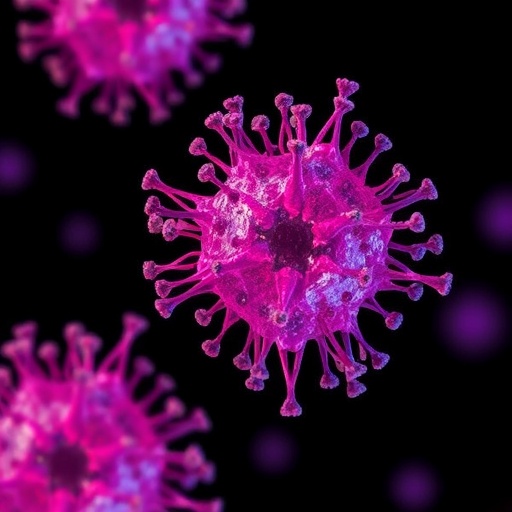Droplet vs. Picowell: Unveiling New Insights in Colon Biopsy Research
Exploring diseases in the gastrointestinal tract, particularly cancer, has long focused on epithelial cells—the protective layers that line our organs. Conventional wisdom dictates that these cells are the culprits behind gastrointestinal diseases. However, understanding the nuances of these cells and their environment is a challenge. Researchers are often faced with the dilemma of extracting delicate cells from their natural habitat—the gut’s mucosal lining—without inflicting damage that could skew experimental outcomes.
The advent of single-cell RNA sequencing (scRNA) techniques has revolutionized our understanding of these cellular environments. Among the methods utilized in this field, droplet-based single-cell RNA sequencing (D-scRNA) has gained significant attention. This technique allows scientists to capture intricate details about individual cells and their interactions in the mucosa. Nevertheless, the method is not without complications; it often subjects the cells to stress and comes with substantial resource demands, which may not always justify the benefits it brings.
Recently, a novel technique, picowell-based single-cell RNA sequencing (P-scRNA), emerged as an alternative that promises to be less invasive and more efficient in analyzing epithelial cells in human biopsies. Researchers have begun to ponder whether P-scRNA could effectively compete with the well-established D-scRNA methods. However, until now, there has been no comprehensive comparison of these two techniques in the context of human mucosal biopsies—crucial samples for advancing knowledge in gastrointestinal research.
A recent study undertook this vital comparison, carefully analyzing human colon biopsies using both D-scRNA and P-scRNA methods. The research aimed to uncover the specific strengths and weaknesses of each platform, thereby offering insights that could guide future experimental designs. By employing identical preparation methods for the biopsies, the researchers ensured that they analyzed a consistent set of cells across both platforms, allowing for a robust comparison.
The study revealed distinct disparities in the results produced by each technique. D-scRNA emerged as a powerhouse, able to capture a broader range of cells and provide extensive gene coverage. This robustness means that researchers can glean detailed insights into the mucosal microenvironment and the individual cellular behaviors within it. However, the advantages of D-scRNA come with caveats; the stress it introduces to cells can lead to variability in results, and a higher rate of mitochondrial DNA contamination could further complicate interpretations.
In contrast, the P-scRNA method was found to be significantly gentler on the cells, showcasing its potential for preserving cell quality and reducing mitochondrial contamination. While P-scRNA proved resource-efficient and less demanding, it was less effective in capturing the entire spectrum of cell types, particularly rare subpopulations that could play pivotal roles in disease mechanisms. This trade-off highlighted the inherent challenges in choosing the optimal approach for specific research questions in the context of gastrointestinal diseases.
Understanding these differences is crucial for the scientific community. By elucidating the factors that influence scRNA results, researchers can better interpret their findings and decide on the most appropriate techniques for their studies. As researchers strive for rigor and reproducibility in their work, this study sets the stage for more informed decisions in the ongoing quest to understand the complexities of gastrointestinal diseases.
Looking forward, the implications of this study extend beyond mere comparisons. The insights gleaned from this research will inform the strategies employed in ongoing clinical trials aimed at precision prevention of early-onset colorectal cancer. By applying their findings to optimize biopsy analyses from patients participating in these trials, researchers hope to unravel the effects of various potential preventative agents, such as aspirin, omega-3 fatty acids, coffee, and incretin mimetics. These efforts endeavor to elucidate how these substances influence the colon tissue microenvironment, ultimately achieving a greater understanding of cancer prevention strategies.
The findings underscore the vital role of method selection in scRNA studies and the necessity for scientists to be equipped with an understanding of the trade-offs inherent in each approach. With deeper insights into the behavior of epithelial cells in the gut, researchers are better positioned to make strides in the fight against gastrointestinal diseases, enhancing our ability to prevent and treat conditions such as colorectal cancer.
Emerging technologies like P-scRNA and D-scRNA not only enhance our capabilities in biomedical research but also present new challenges that must be addressed as the field of gastrointestinal research progresses. Continuous exploration and validation of these techniques will pave the way for breakthroughs in understanding and managing cancers effectively, propelling us closer to the ultimate goal of improving human health.
As we push the boundaries of scientific knowledge, studies like this one catalyze the dialogue surrounding optimal methodologies, encouraging a collaborative spirit within the scientific community. The quest for knowledge is a shared journey, and by pooling insights and resources, researchers can foster a more robust understanding of diseases that affect millions worldwide.
Collaboration and transparency in research methodologies hold the key to unlocking the potential of precision medicine. By bridging gaps between techniques and harnessing the strengths of various approaches, scientists not only strengthen their findings but also enhance the quality of care provided to patients at risk of gastrointestinal diseases. Thus, the study is not merely a side note in the ongoing quest for knowledge; it’s a cornerstone upon which future inquiries can be built.
Ultimately, this research serves as a reminder that the path to understanding complex diseases is paved with challenges and learning opportunities. By questioning, testing, and iterating on our approaches, we inch closer to the innovations that will redefine how we tackle health crises and cultivate a healthier future for all.
Subject of Research: People
Article Title: Droplet vs. Picowell: Considerations for single-cell transcriptomic profiling of human colon biopsies
News Publication Date: 10-Apr-2025
Web References: N/A
References: Downie, J. M. et al., “Droplet vs. Picowell: Considerations for single-cell transcriptomic profiling of human colon biopsies,” Cellular and Molecular Gastroenterology and Hepatology DOI: 10.1016/j.jcmgh.2025.101503
Image Credits: N/A
Keywords: Gastrointestinal disorders, Cancer, Colorectal cancer, Single-cell RNA sequencing, Biopsies, Research methodologies, Precision medicine.




